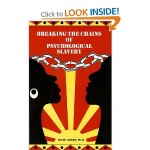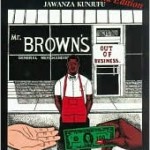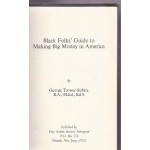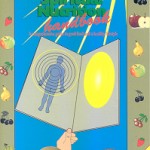Top Ten Books African Americans should read & have in the home
We discussed the following books on radio as part of series “14 Days of Thought Provoking Topics”.
Top Ten Books African Americans should read & have in the home.
By Franklin Fudial, Editor and Publisher of The Muskegon Tribune Newspaper
1. On Afro American History by Malcolm X (Under 100 Pages)
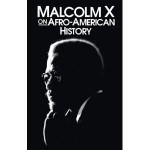
* Recounts the hidden history of the labor of people of African origin and their achievements.
- This little book packs a powerful punch. Malcolm X explains clearly, and often in a humorous way, how knowing the truth about your history is necessary for building a movement to tear down racism and build a better society.
The heart of the book is a speech that Malcolm gave less than a month before his death. His point is that Black people have to become aware of their true accomplishments in the past in order to change the world in the present and future. By looking at ancient African civilizations, West African kingdoms, the rise of imperialism and the history of slavery in America, Malcolm shows that Black people have played a huge role in shaping human history.
2. From the Browder File by Anthony Browder (Under 100 Pages)
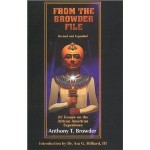
- · “From the Browder File” is a collection of essays on the African American experience. Many of the essays are reprints from his column in the Washington Afro-American newspaper that will leave you wondering “why don’t they teach me this in school.”
- · It was originally published in 1989 and is now available in a revised and expanded version, last updated in 2000.
- · It is comprised of the black history that has been hidden for years, and that unfortunately, the masses of black people still don’t know. This book shatters the myths of our past, and replaces it with our true history dating back to the motherland.
- · It provides inspiration and instills a sense of pride in its readers that has long been lost.
- · This book provides tools to use this newfound knowledge, namely through 3 main steps: controlling your thinking, controlling your actions, and exhibiting fortitude. It provides a background to help control your thinking outside of the mental chains of slavery, that has so many of us yet bound, and encourages us to pass this information on to the future generations so that it will not be lost. It focuses on the self-empowerment that comes with the attainment of knowledge.
3. Breaking the Chains & Images of Psychological Slavery by Dr. Naim Akbar (Under 100 Pages)
- · Breaking the Chains is a compilation essays by psychologist Dr. Na’im Akbar and a revision/update of its parent publication originally published in 1976 and re-issued in 1984.
- · It was entitled Chains and Images of Psychological Slavery. What separates “Breaking the Chains” from its predecessor is “the inclusion of specific sections which address the process of eliminating mental slavery or “the ghost of the plantation.”
- Dr. Akbar develops two ideas in these essays. (1) the impact of slavery and (2) the influence of Caucasian images for worship on the psychology of African-Americans.
- Dr. Akbar introduces a behavioral determinant which he says, does not have great legitimacy in Western psychology. And that is “the notion that individual behavior can be influenced by collective factors which are also historically remote.”
- In the first essay, Psychological Legacy of Slavery, Dr. Akbar says that the over 300 years experienced in slavery’s brutality and unnaturalness constituted a severe psychological and social shock in the minds of African-Americans.
- He discusses the slave-making strategy white slave trader, William (Willie) Lynch laid out in his infamous speech delivered in 1712. Willie Lynch concluded this speech by saying, “My plan is guaranteed, and the good thing is that if used intensely for one year, the slaves themselves will remain perpetually distrustful.”
- The essay entitled Liberation from Mental Slavery devises strategies for the breaking of these mental chains. Dr. Akbar reminds us every other form of animal life on this planet, no matter how gigantic or how small is guided by their instinct or innate programming. Humans are the only life form in nature who operate based upon our self-consciousness or what we know about ourselves. We only know what we are taught.
- The last essay, Racial Religious Imagery and Psychological Confusion, according to Dr. Akbar, “Modern students and scholars of the mind have not adequately dealt with the influence of religious symbols and imagery on the thinking of people.” He goes on to discuss how one portrayed in the image of God begins to feel that his particular physical features have endowed him with automatic claims to divinity, while one not so portrayed develops the idea that the image represented is superior and therefore he is inferior.
4. Black Economics by Dr. Jawanza Kunjufu
Black Economics: Solutions For Economic And Community Empowerment
- This micro- and macro-analysis of economic conditions in the black community explores why African Americans earn only 61% of white American income, why many African Americans prefer to maintain a “good job” rather than own and operate their own businesses, and why African American consumers only spend 3 percent of their $600 billion in African American businesses.
- Topics covered include present and historical analysis, foreign economic success, the global economy, obstacles to development, and black consumers and entrepreneurs.
5. Black Folks Guide to Making Big Money in America by George Subira
- This book presents a balanced view of the possibilities set before blacks in America and the requirements to obtain such realities.
- It gives a no-nonsense approach to forming dreams and making reasonable estimates for the cost to make them real.
6. Supreme Wisdom volume 1 & 2 by The Most Hon. Elijah Muhammad (Under 100 Pages)
Supreme Wisdom: Solution To The So-Called Negroes Problem (Vol. 1)
- · This title is the 1st of two volumes of a comprehensive overview of the Nation of Islam’s policies, positions and practices.
Supreme Wisdom: What Every American So-Called Negro Should Know About (Vol. 2)

- This title is the 2nd of two volumes of a comprehensive overview of the Nation of Islam’s policies, positions and practices.
- The Most Honorable Elijah Muhammad gives short, but detailed knowledge on a variety of topics.
7. Spiritual Nutrition Handbook by Keith Wright
- This book is about healthy eating.
- You’ll learn how the body is effected by various foods.
- You’ll learn how to transition into vegetarianism.
- You’ll learn healthy alternatives that you can easily incorporate into your meal prep. You’ll get recipes, an herbal remedy/illness reference guide, and a listing of resources to help you down the road.
- Receive: Weight Loss and Weight Gain Advice
- Valuable Information on Nutrition
- 50 Nutritious & Delicious Recipes
- Herb Reference Section
- 32 Survival Health Tips
- The purpose of this book is to enhance our knowledge of diet, food, and their related good habits so that we can improve life. Additionally, it offerd valuable information on interrelationship between diet, mental health, the environment, and spiritual aspirations.
8. Black Men: Obsolete, Single, & Dangerous by Haki R. Madhubuti
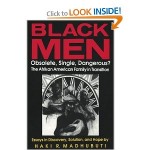
- Here is the seminal and critical work that helped solidify Haki Madhubuti as an informed, passionate, and caring commentator on Black life, culture, relationships, and the development and stability of the Black community.
- In Black Men, an integral text for anyone with vested interest in building healthy, thriving Black families and communities, Madhubuti takes aim at some of the critical issues facing the African American family.
- He offers useful, pointed, practical solutions for overcoming these obstacles and challenge
9. African Origins of the Major Western Religions by Dr. Yosef ben Jochannan
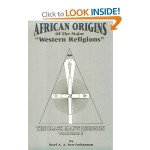
- African Origins was first published in 1970 and continues to be one of Dr. Ben’s most thought-provoking works.
- This critical examination of the history, beliefs and myths, remains instructive and fresh.
- By highlighting the African influences and roots of these religions, Dr. Ben reveals an untold history that many would prefer to forget.
10. In the Spirit by Susan L. Taylor
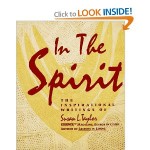
- Twenty-two lifelines to personal growth and fulfillment from the editor in chief of Essence magazine.
- When Susan L. Taylor rose to editor in chief of Essence magazine more than a decade ago, she began writing an editorial column in which she shares her thoughts and feelings about how developing one’s inner awareness ensures the wisdom and clarity needed to create a deeply satisfying and fulfilling life. The monthly column called “In the Spirit” is one of the most popular in the magazine.
- Susan L. Taylor connects with the reader in a personal and meaningful way, in a voice that is sisterly, informed, and motivating. She challenges her readers to transcend their fears, to face inevitable challenges in their lives courageously, and to use change as an opportunity to grow.
- She suggests specific methods for working through problems and improving your emotional and spiritual health.
- Susan L. Taylor writes passionately about what she has seen and learned in the course of her travels throughout the United States, Caribbean, and Africa. Her essays have helped many to balance the demanding world of work and business with the personal world of family and friendship. She shares bits of her own life–her loves, her trails, and triumphs–and the lessons she’s learned.
- A source of encouragement, self-affirmation, empowerment, and peace of mind.
You can purchase these books and DVD’s from the following websites:
http://www.thirdworldpressinc.com/


